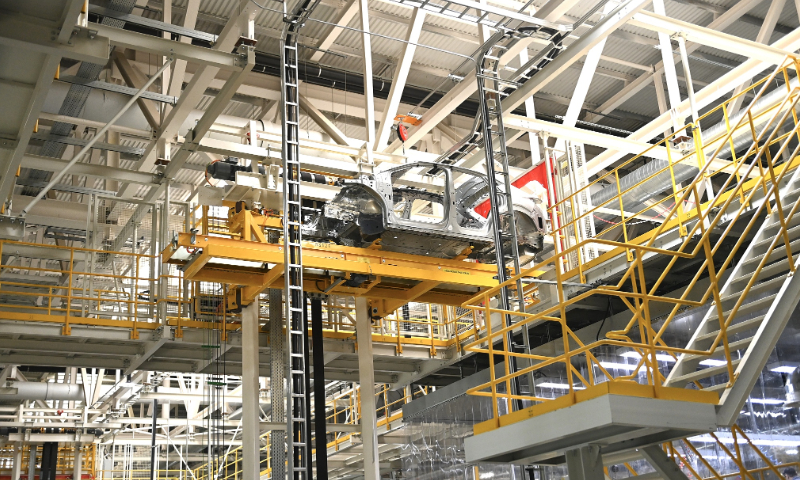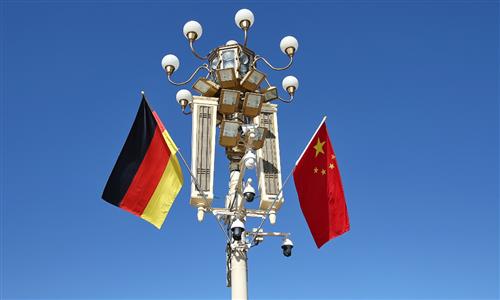
The photo taken on March 28, 2024 shows the workshop of the Volkswagen MEB (modular electric drive matrix) plant in Hefei, Anhui Province. Photo: VCG
German carmaker Volkswagen announced on Thursday it would invest 2.5 billion euros in its innovation hub in Hefei, East China's Anhui Province, as the company is further increasing its pace of innovation in China, its key market, the Global Times learned.
The move came as more German companies are intensifying their presence in the Chinese market as they are hoping to further tap into the potential of the world's second-largest economy. It also comes ahead of the visit of German Chancellor Olaf Scholz to China this month.
With a consistent "In China, for China" approach, Volkswagen continues to drive localization and strengthen the alignment of its products with the needs of Chinese customers, the company said in a press release sent to the Global Times on Thursday.
After 40 years in the Chinese market, Volkswagen's network in China now features 39 plants, 90,000 employees and around 50 million customers.
The new expansion in Hefei comes against the backdrop of China's fast development of the electric vehicle industry, which is taking the lead globally in terms of production and sales.
Volkswagen China Technology Company (VCTC), the Group's 100 percent owned subsidiary based in Hefei, is the central unit responsible for product localization. VCTC is developing China-specific electric architecture, called the China Main Platform, on which at least four additional models for the electric entry-level segment in the compact class will be built from 2026.
In addition to the expansion of R&D capacity, preparations are also being made for the production of two Volkswagen models that are currently being developed together with Chinese partner XPENG. Production of the first model, an SUV in the mid-size segment, will begin as early as 2026, according to the company.
The additional models will accelerate the electrification of Volkswagen's model portfolio in China. By 2030, more than 30 all-electric models of all group brands will be on offer in China, said the company.
Audi, another German carmaker, is also expanding its business in the Chinese market. In a recent statement that the company sent to the Global Times, Audi said that following the start of production by Audi FAW New Energy Vehicle Co this year, they will introduce a luxury pure electric platform with advanced production technology, strengthening China's position as a global strategic investment market.
German businesses are putting more weight on the Chinese market, despite the intensified "decoupling" or "de-risking" moves by the EU against China.
In mid-April, Scholz is set to travel to China with a bumper delegation of ministers and business executives. The large scale of the delegation grabbed foreign media attention. Experts said that his visit signifies Germany's willingness to maintain pragmatic cooperation with China, despite certain noises in the bloc targeting China.
A report released on Wednesday by the German Chamber of Commerce in China revealed that 79 percent of the German companies surveyed in China plan to continue their investment, affirming their confidence in China's robust economic foundations.
Global Times

